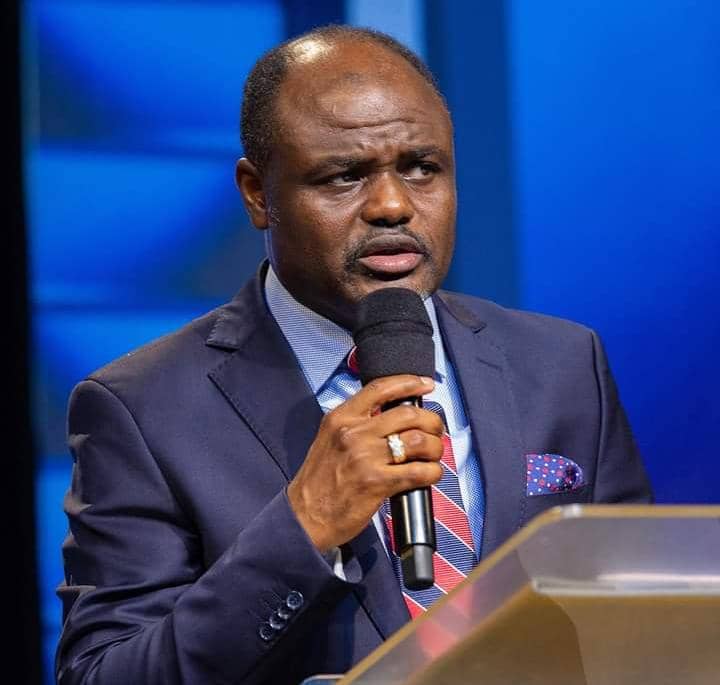Controversial pastor sparks new debate over queer Christian inclusion
Mike Daemon is the pseudonym of the founder and presenter…
Rev. Damina suggests Christian acceptance is conditional on becoming heterosexual

COMMENTARY
By Mike Daemon
Controversial Nigerian pastor Dr. Abel Damina of Abel Damina Ministries International has stirred fresh debate online after a video began trending in which he suggests that queer people should be welcomed into the church to get them to stop being queer. Critics have compared the comments to advocacy for “conversion therapy,” a discredited practice that seeks to change a person’s sexual orientation or gender identity.
Known for his bold criticisms of fellow preachers and theological doctrines, Damina this time turned his focus to queer Christians—and what he believes is their place in the church.
In the clip, which has been circulating on Instagram, Damina is asked whether LGBTIQ+ individuals can serve in pastoral or leadership roles. His response, while delivered in calm tones, reflects long-held conservative religious views.
“You take them through discipleship,” he said. “Discipleship brings transformation. In the process of discipleship, they’ll drop all of that. Discipleship will take care of all of that [homosexual feelings].”
Watch the clip below:
View this post on Instagram
While some of his followers praised his response as aligning with Christian doctrine, critics argue that Damina’s comments subtly reinforce harmful ideas—particularly the notion that sexual orientation is something to be changed or “healed” through faith. Activists and health professionals have repeatedly warned against such views, likening them to religious conversion therapy, a discredited practice condemned by multiple psychological and human rights bodies around the world.
Though Damina may have appeared to suggest a pathway for inclusion, his emphasis on transformation implies conditional acceptance—only after abandoning one’s queer identity. For many queer Nigerians of faith, this continues to place them at the margins of religious life, reinforcing shame and internal conflict.
As discussions around faith and sexuality become more visible in Nigeria’s digital spaces, Damina’s comments highlight the need for deeper, more inclusive conversations within Christian communities—conversations that affirm, rather than erase, the humanity of LGBTIQ+ people.




